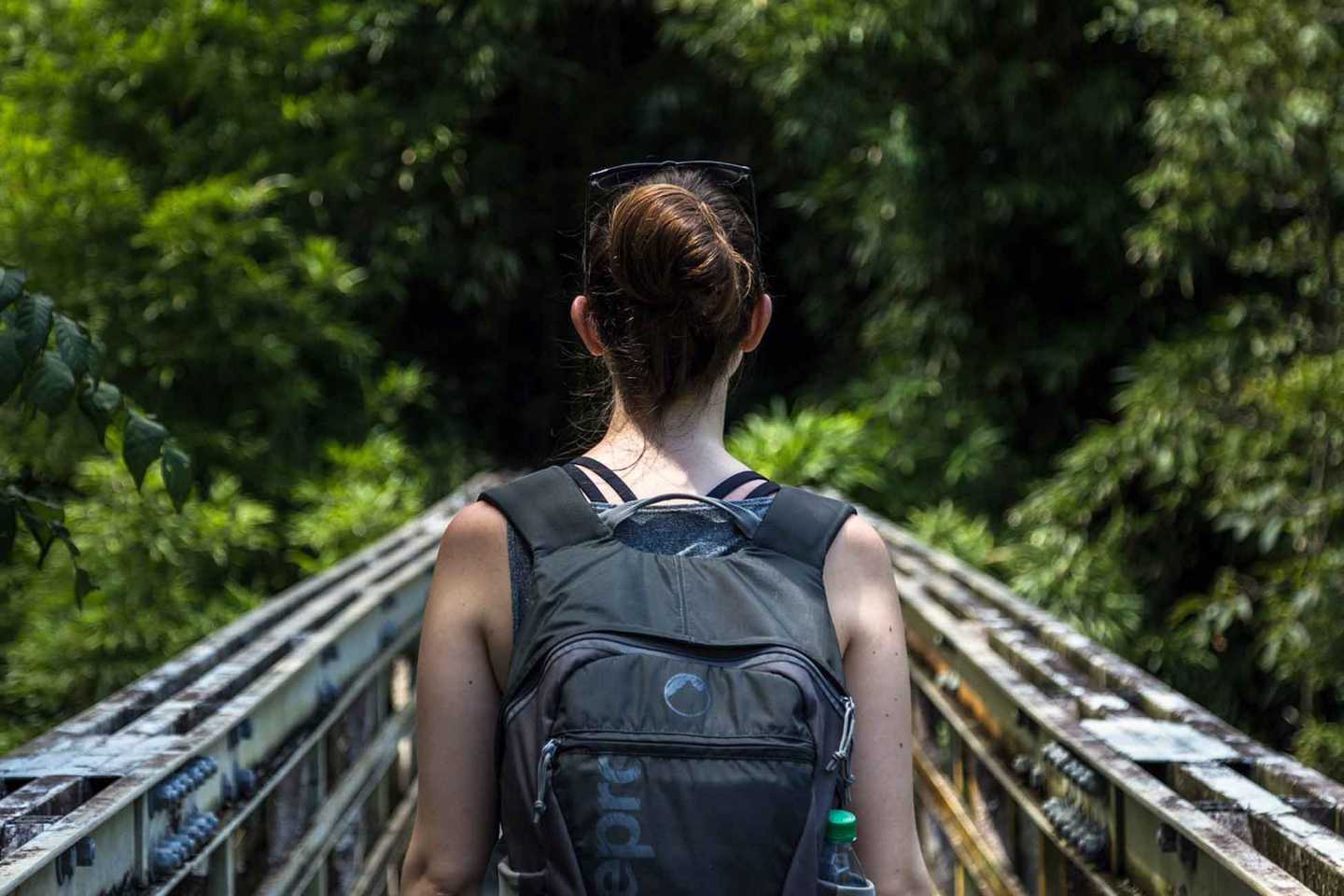Ready, Set...
In all the excitement of getting ready to leave, it can be easy to forget the things you are responsible for at home. You will need to consider how you will handle some of the following tasks while you are away. This may vary considerably depending on the length of your overseas experience.
Items to Consider
Residence: Are you planning on giving up your house, apartment or room? Do you need to find somebody to sublet or take over the lease? If you own a house, are you going to rent it out or find a housesitter? Who can keep watch over your home in your absence?
Bills: Are you going to cancel your utility and other accounts? If not, who will pay these bills in your absence? Can you set-up online billing before you go? Do you have loan payments to cover while you are away?
Mail: Do you need to have your mail forwarded? Do you want to asks someone to open letters on your behalf?
Taxes: Are you away during tax season? How are you going to prepare and file your taxes while you are abroad?
Elections: Will there by any elections in your home city, province/state, country while you are away? If so, research and make arrangements to vote from abroad.
Money and Banking
How you decide to organize your finances while you are abroad will be greatly influenced by the length of your trip and your host country. For example, someone embarking on a three-week summer volunteer project in San Jose, Costa Rica will have very different needs than a volunteer undertaking a year-long placement in rural Senegal. Regardless, you should always estimate how much you will need and consider creating a preliminary budget before you leave. This will be dependent on what (if any) expenses are covered once you are in-country.
If you are going through a sending organization, they should be able to advise you on how much you should budget and what the easiest and most secure way of obtaining money will be while you are abroad. Those who are organizing their own experiences should consult guidebooks (keep in mind volunteering or living as a student is likely less expensive than travelling) and, if possible, speak to locals to get a realistic sense of costs.
It’s always a good idea to bring some cash with you. You may choose to exchange some of it into the local currency before you leave (if possible), though the rate will likely be much higher than if you exchange it at your destination. Another option is to bring US dollars as they are widely accepted and easy to exchange. Higher bills may fetch a better exchange rate. If you are purchasing your visa when you enter the country, make sure you know how much it will cost and what currency they accept. Any cash should be kept securely on your person, preferably in a money belt or pouch, while you travel.
Money Security
Keep all cash, debit and credit cards hidden on your person or in a safe, locked place.
Consider keeping small amounts of cash in your pocket for little transactions and the rest in a pouch so you aren’t pulling out a lot of money at any given time.
Always keep a hand on your purse and consider using one that has a strap that goes across your body, which is more secure. Be especially vigilant in crowded markets, train stations and other hubs.
Never keep important items in fanny pack, backpack or back pocket.
Only exchange money with authorized agents.
Use ATMs during the day in safe locations and put your cash away immediately.
Do not share PIN numbers or passwords with anyone.
Before you leave, you will need to figure out how you will access money while you are away as it is likely not feasible (or advisable!) to bring it all with you. Using your debit card is probably the easiest and safest way and the exchange rates are usually favorable. Be sure to check with your bank before you go to determine if your card will work in your destination and to get a sense of any associated fees. Sometimes you may need to change your PIN number to be a specific length.
Credit cards are also becoming more widely accepted, though they should not be relied on solely, especially outside of urban centres. In a pinch, you can also take out a cash advance on your credit card (beware of very high interest rates) if your debit card is not working.
In the past, traveller's cheques were the way to go as they provided the safest option with the best exchange rate, but this is generally no longer the case as it is increasingly hard to find places that will cash them and the rates may be comparable (or worse) than other available options.
If you will be overseas for an extended period of time and/or receiving a stipend in local currency, it may be a good idea to open a local bank account as this lets you avoid constant currency exchange and ensures your cards will be widely accepted locally. Ask around for suggestions and be prepared for a long wait and lots of paperwork. You may also choose to open a joint account with a family member at home so that they can deposit money into your account and deal with any issues that may arise in your absence.
Tips on Banking Abroad
Advise your home bank and credit card companies where you will be and the duration of your stay to avoid any unnecessary holds on your accounts.
Make sure that you have a variety of ways to access money, including debit cards, credit cards and cash. In some places ATMs can be break down for a few days or weeks, so be sure you have some emergency cash.
Check with your home bank (and local guidebooks) to make sure that you will be able to access your account through ATMs in your host country. Some places will only accept Cirrus or Plus cards, but not both.
Ensure that you have online banking set-up for your chequing account and your credit card so that you can easily monitor usage and address any issues while you are abroad.
Compare rates before exchanging money. Hotels and airports often have poor rates and going to the bank can be a big time commitment. Authorized foreign exchange houses may be a good option.
If you open an account while you are abroad, it is probably a good idea to close it when you leave. Even if you have a fair bit of local money still in it, the fees may end up costing more than cash you have in the account.
Packing
Packing for a volunteer abroad trip is an art more than a science and will vary depending your location, length of trip and personal needs. Your organization may provide a sample packing list (which is great), but you will ultimately need to decide for yourself what you will need.
Research
Before you begin, do a little research to make your job easier.
Determine the usual weather in the place you will be going to. Be sure to hone in on the specific city/region as weather patterns may vary considerably within a country. Also consider the season(s) you will be there.
Consider local dress codes and pack accordingly. This includes dressing appropriately for leisure time and work, which is often more conservative than what you may be used to at home. It is very important to respect local customs and in many places you will need to avoid wearing shorts or clothes that reveal your knees, midriff or shoulders. You can find relevant tips for this from the sending or host organization, guidebooks, online research or discussions with people from the country.
Try to find out how readily available certain items are in your volunteer location and don’t pack anything that can be bought locally for a reasonable price. For example, if you are volunteering in a capital city, you will likely be able to purchase almost anything you need (though the brands may be unfamiliar), so a year’s supply or shampoo is probably unnecessary. A rural location may require more planning and packing to ensure you have what you need.
Make a preliminary list of what you think you want to bring. Borrow as many items as possible to avoid spending too much money on equipment/items that you may not use again.
We can’t tell you exactly what to pack, but we can share some tried and tested tips with you to make your life a little easier. This is by no means comprehensive and should be used to complement your personal list.
Packing Tips
Pack light.
Take what you think you need, divide it in half and if there are still items you’re not sure about, you probably don’t need them. Pack a few days before your departure, so you can repack your equipment, eliminate extras and add forgotten items. Walk around with your pack and make sure that you are able to carry everything by yourself without tiring too quickly. You may be getting in and out of buses or trains and walking extended distances with all of your belongings.
Pack smart.
Bring clothes that do not require special care and will dry quickly as you may not have access to a washing machine and dryer. Long skirts and light pants are a good idea for hot climates. Plan so that you know exactly where everything is and important items (such as your headlamp) are readily available. Use small combination padlocks for your bags and other things.
Carry on.
When flying, carry your valuables, prescription medication, a change of clothing, a toothbrush and motion sickness pills in your daypack. All important documents and cash should be kept on your person.
Proof it.
Consider using waterproof containers for expensive items, such as your camera, especially if you are traveling during the rainy season. Bring lots of big ziploc bags. They are infinitely useful and can be re-used. Pack any items that may leak (shampoo, sunscreen) in them.
Stock up on comfort.
Bring a few comfort items from home to get you through any challenging times: photos, books, movies or favorite snack foods. Skin care products, floss, sunscreen, tampons and special soap may be hard to find or expensive, so bring them with you. Earplugs may also help you get a good night sleep in unfamiliar and loud new surroundings.
There are also a few things you might consider leaving at home.
Do Not Bring...
Unnecessary valuables—and keep those you do bring well hidden. This will help minimize the chance of theft as well as the potential wealth disparity between you and your local counterparts.
More than you can comfortably carry by yourself.
Anything that you would be devastated to lose.
Chocolate. It does not do well in hot climates and may turn your bag into chocolate soup, if you’re not careful. Trail mix, energy bars or peanut butter are all good alternatives.
Add to Favorites



